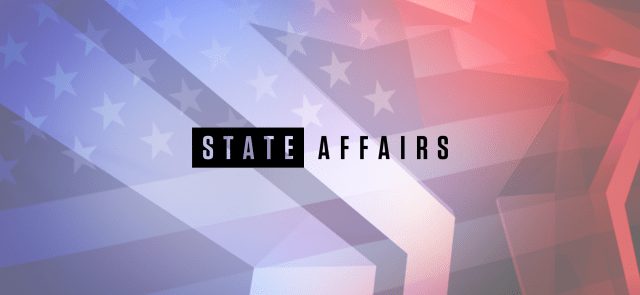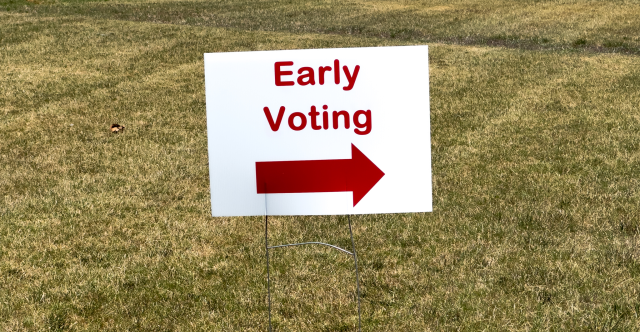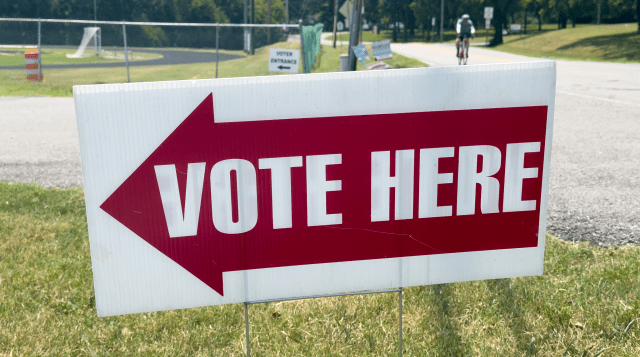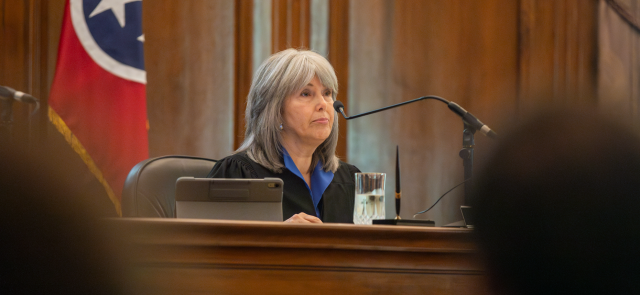Stay ahead of the curve as a political insider with deep policy analysis, daily briefings and policy-shaping tools.
Request a Demo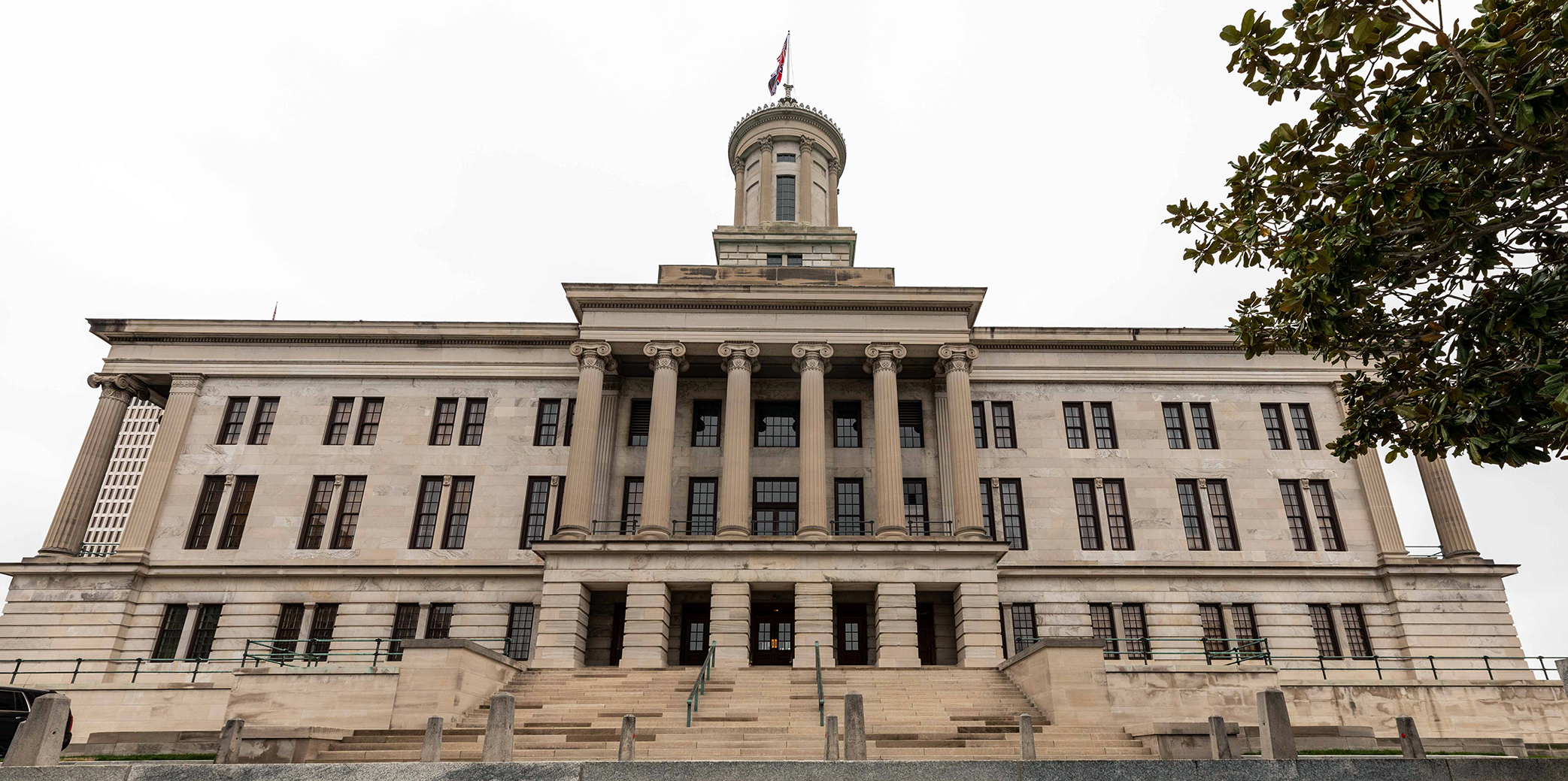
(Credit: Erik Schelzig)
- Gov. Bill Lee's school voucher proposal failed amid disagreements between House and Senate Republicans last session
- The proposal seeks to sweeten the pot for public school teachers by offering a one-time $2,000 bonus
- The first year of the program would create 20,000 vouchers to defray private school tuition costs
The latest effort to create a universal school voucher bill in Tennessee is underway.
House Majority Leader William Lamberth, R-Portland, filed HB0001 on Wednesday, just hours after the conclusion of the 2024 election.
The bill mirrors several elements of the measure championed by Gov. Bill Lee last session that failed amid differences between House and Senate Republicans. It would create 20,000 vouchers around the state, with half of them reserved for students from families earning at or below than three times the salary threshold for reduced-price meals — or $173,160 for a family of four.
Schools accepting vouchers would be required to administer a “nationally standardized achievement test” to participating students. Critics have noted that that standard is unfair when public school must participate in the state’s assessment tests. Testing data from private schools would also be “deidentified” when submitted to the state.
The bill calls for a one-time bonus of $2,000 to be paid out to all K-12 teachers in the state.
It would also designate 80% of sports wagering taxes to school construction and maintenance, with priority given to economically distressed counties and those affected by natural disasters. The gaming proceeds are currently earmarked for college scholarships.
Senate Majority Leader Jack Johnson said last month that the upper chamber has abandoned a key fact of last session’s bill. The Franklin Republican said the Senate will no longer pursue creating an open enrollment program that would allow parents to send their children to any public school regardless of where they live.
The House version of this spring’s voucher bill would have dialed back various testing requirements for students and educators and boosted state spending on teacher pensions and school maintenance.
While the two chambers were unable to find middle ground last spring, they kept Lee’s $144 million for the voucher program in the budget for future use.
Noting the state has nearly doubled its investments in public education over the past decade, Republican House Speaker Cameron Sexton of Crossville said “parents and families deserve the freedom to use their hard-earned tax dollars to provide the best opportunity for their children to achieve.” Giving parents the ability to choose to leave “failing school systems” and not be limited by ZIP Code or income will provide more opportunities and “reduce poverty,” Sexton said, adding that increased competition will make schools, school systems, and administrators meet the need for a higher quality of education.”
Republican Senate Speaker Randy McNally of Oak Ridge called “school choice” a “critical piece of the education puzzle.” The expanded options for parents will “ensure choice, not geography, determines student success.” He said he is looking forward to “working through the details” of legislation.
Tanya Coats, the president of the Tennessee Education Association, denounced the proposal.
“Teachers aren’t fooled by the promise of a small bonus in exchange for a bill that would lead to public schools closing across the state,” she said. “This proposal is still a voucher bill, no matter how it’s dressed up. The people of Tennessee have clearly said that this is not in the interests of our state.”
Democrats were also unimpressed.
“We all knew the governor’s voucher scam would resurface in some form — Bill Lee and Republicans have made too many promises to special interests groups and education privatizer donors to walk away from it,” said House Democratic Caucus Chair John Ray Clemmons of Nashville. “The sad reality is that our public schools and children will never be safe as long as Bill Lee is in office.”
Clemmons said House Democrats remain “fully prepared to fight this latest voucher scam.”
Fellow Democratic Rep. Vincent Dixie of Nashville said from what he’s seen of the bill so far, it contains “poison pill” provisions. It would allow private schools to “just cherry pick which students they want to help.”
“They claim that they’re Christians,” said Dixie. “And we’re supposed to help those who are among the least among us.”
But Dixie said that’s not the case, instead it’s Lee and Republicans “pushing a personal agenda” that is “just a ploy to discredit and destroy public education.”
Know the most important news affecting Tennessee
Get our free weekly newsletter that covers government, policy and politics that impact your everyday life—in 5 minutes or less.
Election Day 2024: State Affairs brings you the fair, transparent, nonpartisan coverage you deserve
Election Day is here and State Affairs stands ready to bring you the kind of election coverage you deserve — fair, transparent and rooted in a commitment to nonpartisanship. Across the states, voters are casting their ballots, deciding on leaders and policies that will shape our communities and futures. And as the results come in, …
Early voting for presidential election gets underway in Tennessee
Tennessee’s early voting period starts Wednesday for the Nov. 5 general election headlined by the battle for the presidency between Republican Donald Trump and Democrat Kamala Harris. Also to be decided are races for the U.S. House and Senate and dozens of state legislative seats. As many as two-thirds or more of Tennesseans could cast …
Tennessee voter registration deadline is Monday night
Take note, procrastinators: Monday is Tennessee’s deadline to register to vote in the Nov. 5 general election. The ballot includes races for president, a U.S. Senate seat, all nine congressional seats, all 99 state House seats and 16 of 33 state Senate seats. As of June 1, the state had 4.8 million active voter registrations …
Supreme Court hears arguments on Tennessee redistricting challenge
Tennessee Supreme Court justices pressed attorneys on questions about standing and who holds the burden to prove good faith — or the lack thereof — in a challenge of new state House and Senate maps drawn following the 2020 census. A three-judge chancery court ruled in November that the House maps withstood a constitutional challenge …
